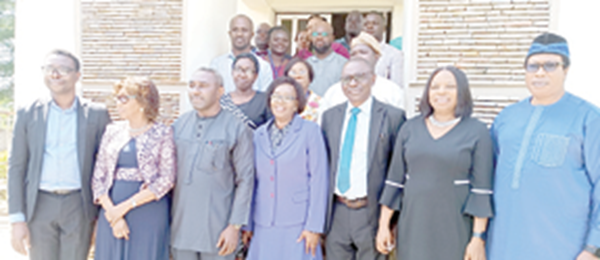Issues around environmental surveillance were in focus as environmental health scientists under the aegis of the Environmental Health Scientists Association of Nigeria (EHSAN) converged at the University of Ibadan for their 12th annual conference.
Speaking at the conference which had as the theme, “Environmental Surveillance: Key to sustainable environmental management,” the EHSAN national president, Dr Oyewale Morakinyo, said the public and the academia have not paid attention to the issue of environmental surveillance. “However, since COVD-19, the issue of surveillance has come to the forefront. It is not just about taking samples of data randomly, but the ability to monitor what’s happening in various environmental media,” he said.
Environmental media refers to the non-living parts of the environment, such as air, water, and land, and any other parts of the environment that can contain contaminants.
Dr Morakinyo added, “Often times, people focus on human health and not do anything about the environment. But studies have shown that most of the diseases and problems that we have are one way or the other related to the environment. If the environment is properly taken care of, we will have good health. So its a forum for us to discuss issues relating to the environment with professionals, students, government officials and other stakeholders, to share knowledge and to network.”
The event featured keynote addresses from Professor Julius Fobil, Provost of Health Sciences at the University of Accra, Ghana, and Professor Solomon Adewoye from the Department of Pure and Applied Biology, Ladoke Akintola University of Technology (LAUTECH).
Professor Fobil emphasized the importance of educating those in the informal sector about the significant impact of the environment on human health. He also discussed the epidemics prevalent in sub-Saharan Africa and highlighted the critical role of environmental monitoring in disease prevention.
Professor Adewoye, in his presentation on the topic: “Environmental Surveillance: Key to Sustainable Environmental Management,” defined environmental surveillance as the process of monitoring and analysing environmental factors to prevent and control public health risks. He said environmental surveillance is particularly essential in low- and middle-income countries due to challenges such as poor sanitation, air pollution, and water pollution.
He said Finland, which has developed a robust network focused on ensuring clean air for its citizens, and Japan, which utilises advanced technologies such as air quality monitoring systems, tsunami and earthquake prediction technologies, and pollution sensors, were examples of effective environmental surveillance.
He added that environmental surveillance played a critical role in Nigeria being declared polio-free in 2020.






